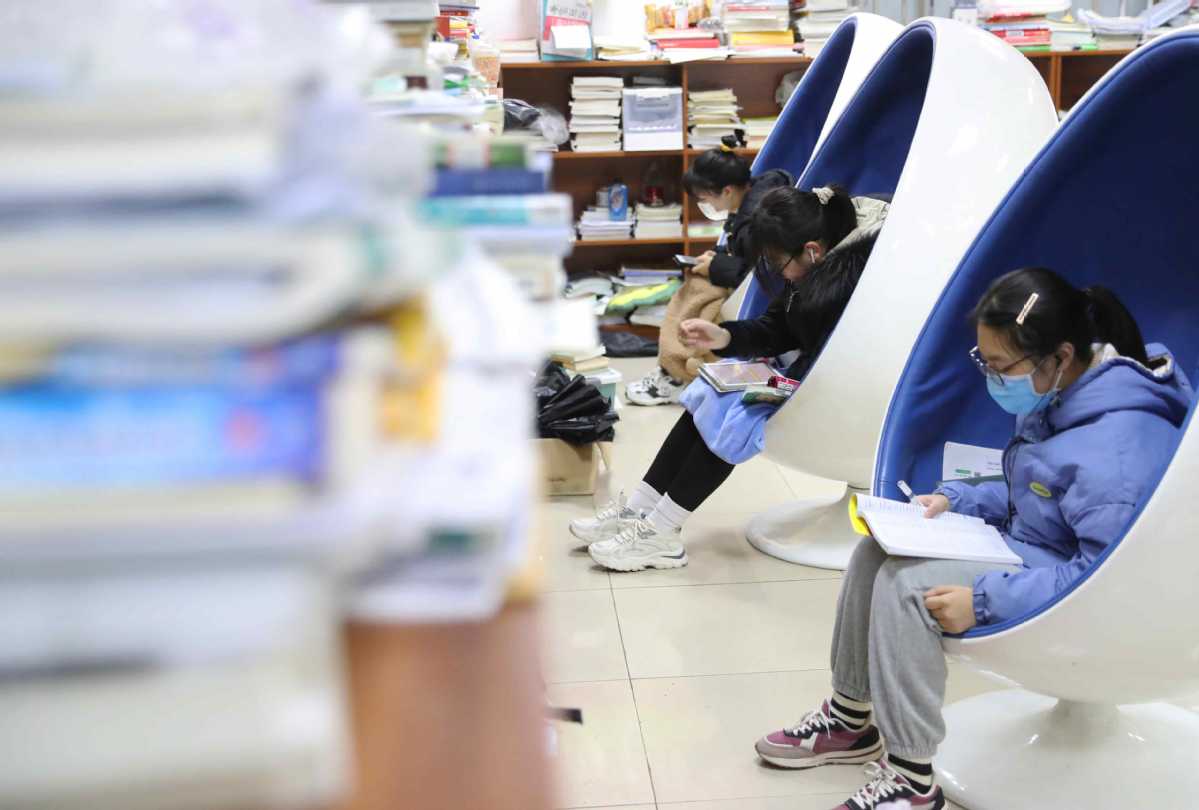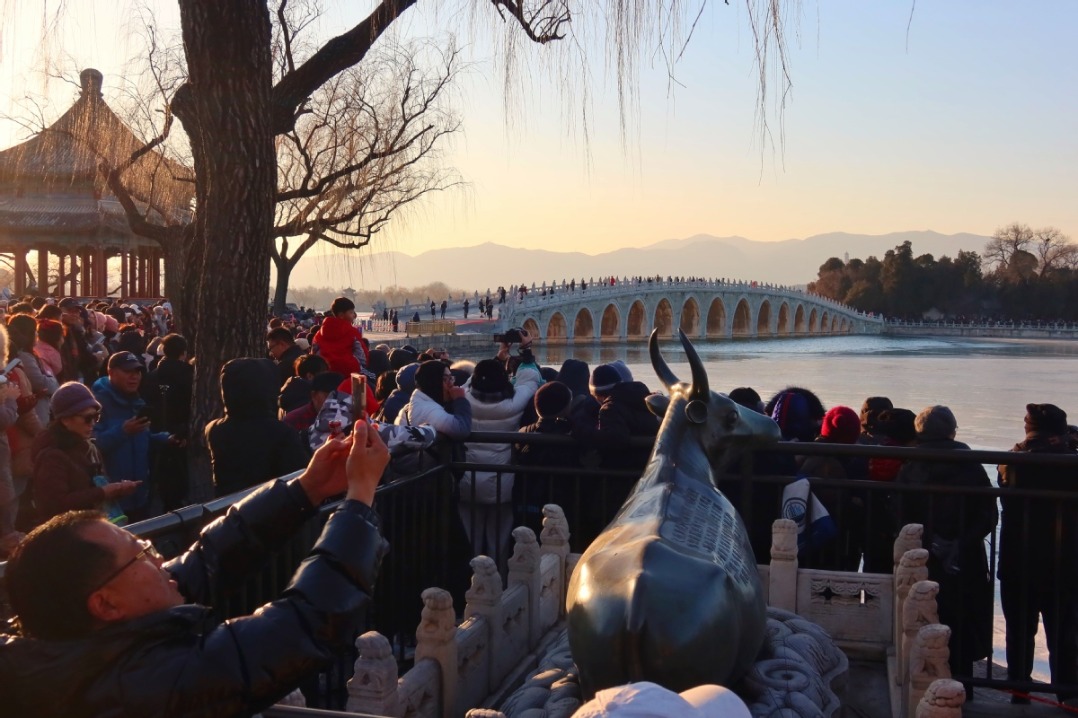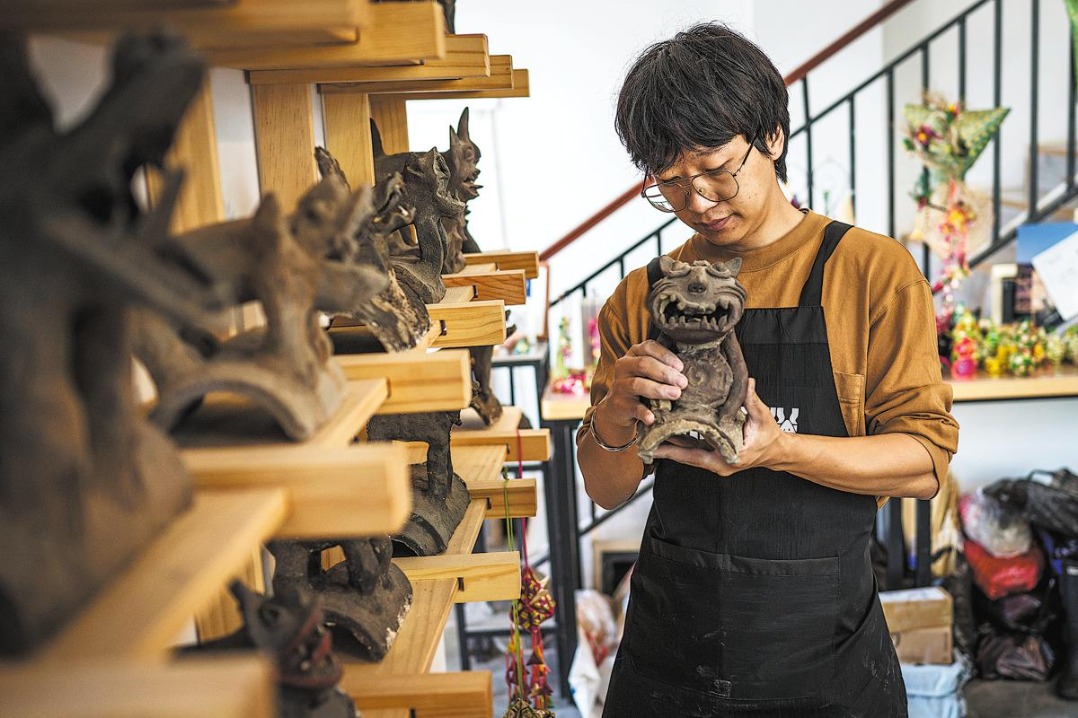Battleground for postgraduates expands


Students come to terms with reality of having to accept offers from less prestigious colleges
The moment Yu Qingyao finished the national postgraduate entrance exam two years ago, he knew that his chances of getting into his dream school were slim.
Sun Yat-sen University in Guangdong province only planned to enroll one postgraduate student in anthropology, but he still decided to sign up for the school because of its reputation and achievements in the field.
In the end, the 23-year-old, who completed his undergraduate studies at Shanghai University, had to settle with doing his postgraduate studies at Shanghai Normal University.
"As someone from populous Henan province and who knows how hard it is to prepare for the national college entrance exam, I was not willing to retake the postgraduate exam for a second year," he said.
Yu represents an increasing number of students who are undertaking their postgraduate studies at universities that are less reputable than their undergraduate schools, either voluntarily or due to the fierce competition in the entrance exams.
A total of 4.57 million candidates signed up for the national postgraduate entrance exam this year, almost double the amount in 2018 when there were 2.38 million. Beijing-based education consultancy New Oriental estimates that the number will continue to increase, passing 5 million next year.
Meanwhile, universities that are less famous have welcomed more postgraduate candidates from better universities.
For example, Wuhan University of Science and Technology enrolled 159 postgraduate candidates who graduated from the "double world-class universities" program, which includes 147 universities that China aims to elevate to "first class" worldwide by the midcentury. More than 40 percent of the new postgraduate intake at Shenzhen University this year are from the "double world-class universities" program, setting a record. Both Wuhan University of Science and Technology and Shenzhen University are not included in the program.
While Yu admits that education at Shanghai Normal University is not as good as at Shanghai University, he believes academic research relies more on dedication and perseverance. Moreover, the experience students have and the academic atmosphere at different universities do not necessarily match the ranking or reputation of the schools, he said.
As he will continue to pursue doctoral studies, the name of his postgraduate school will eventually be less important in landing a teaching position at a university.
Zhou Yong, 24, graduated from Hunan University in 2019 and after working for three years and sitting the postgraduate exam twice, he enrolled at Hainan University this year.
Even though Hainan University is not as highly regarded as Hunan University, it was actually Zhou's first choice as he is from the province and wants to work there after graduation.
"I knew how difficult and competitive it would be if I chose to apply for a more famous university for postgraduate studies, so I opted for the safer and more suitable choice," he said. "While the reputation of the alma mater matters, people with real talent will always be seen no matter which school they go to."
Wei He, 27, views the three years of postgraduate studies as a low point of his life, as he went from Dalian University of Technology, one of the top universities in Northeastern China to Liaoning Petrochemical University, a less famous institution.
When he graduated from Liaoning Petrochemical University with a master's degree in 2020, getting a job was difficult as many companies did not reply. Wei said this was because they must have noticed where he did his postgraduate studies.
"I would not say that I regret the decision of going to a less famous university for postgraduate study, because I did not study hard enough and spent lots of time playing video games during undergraduate studies," he said. "I just had to deal with the negative feelings and try to keep myself busy with studying and improving myself."
Wei eventually landed a job in Beijing related to his postgraduate major and the entry requirement for the job included having a master's degree.
"Many of my colleagues graduated from famous universities and it feels like we are back at the same starting point," he said. "I feel like I have much to learn, and the important thing is that I am more positive and ready to fight."
- Xi presents orders to promote two military officers to rank of general
- New penalties planned for violations related to radioactive waste management
- Best practices in youth cultural exchange released at Chongqing conference
- Yearender: China's 2025 space endeavors have seen new milestones
- HR conference sparks discussion on talent potentials in AI era
- Exhibition of entries for 6th China animal specimen competition opens in Shanghai





































